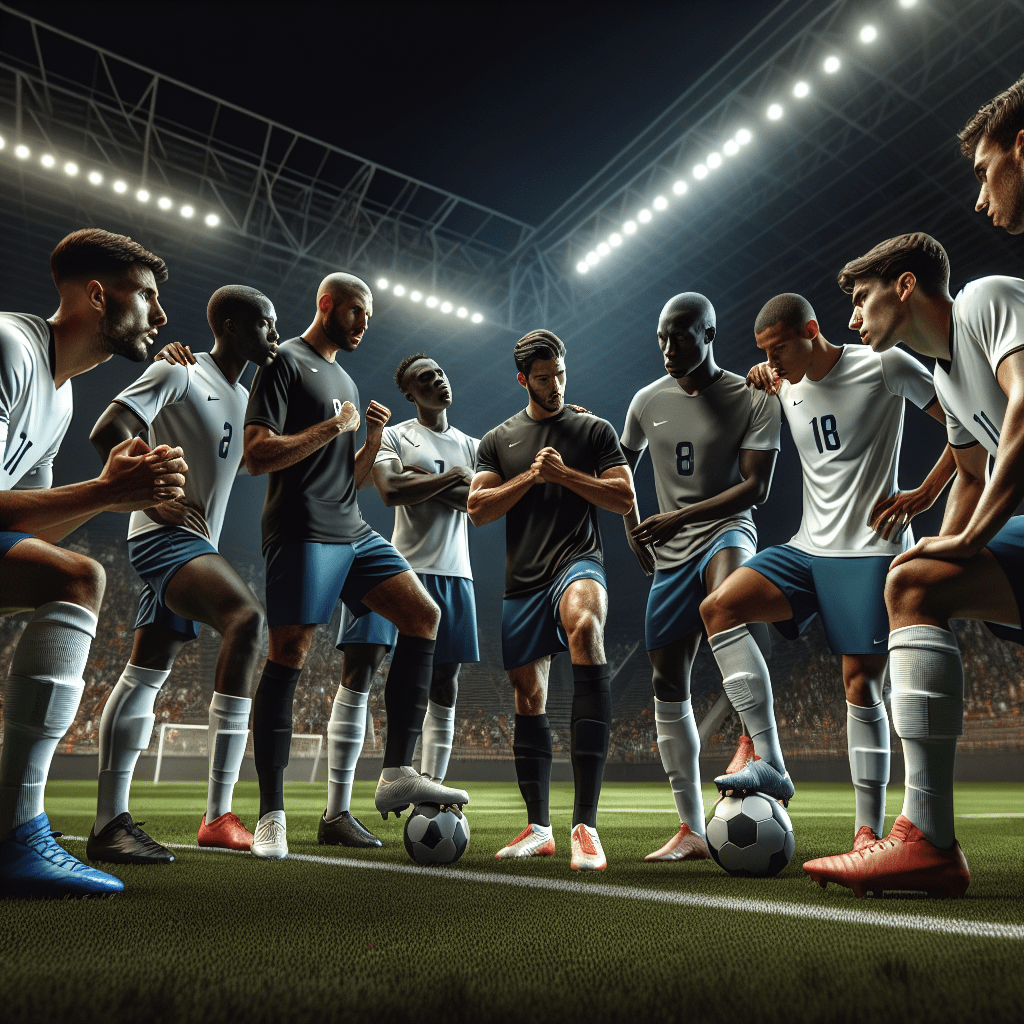[ad_1]
Under Pressure: Coping Mechanisms among Elite Soccer Athletes
Professional soccer, hailed as the beautiful game by its legions of fans worldwide, is a sport that combines grace, strategy, and athletic prowess. At the pinnacle of this sport, elite soccer athletes perform under immense pressure, showcasing their skills in front of thousands in stadiums and millions more watching globally. The weight of expectations, the pursuit of victory, and the fear of defeat coalesce into a formidable psychological challenge. How do these athletes cope with the intense pressure inherent in professional soccer? This article delves into the myriad coping mechanisms adopted by elite soccer players to maintain peak performance levels amidst the high stakes of their sport.
Understanding the Pressure
Before exploring the coping mechanisms, it is crucial to understand the sources of pressure in professional soccer. Elite athletes face performance pressure, expectations from fans, coaches, and personal aspirations, the psychological impact of injury or the possibility thereof, media scrutiny, and the balancing act of personal life with professional demands. Each of these can be a significant source of stress, affecting an athlete’s mental and physical performance.
Emotional Regulation Strategies
One of the primary coping mechanisms is emotional regulation. Players learn to manage their emotions, especially negative ones like fear, anxiety, and frustration. Techniques such as deep breathing, visualization, and positive self-talk are widely used. Athletes may visualize succeeding in their actions, which instills confidence and reduces anxiety. Positive self-talk helps in countering negative thoughts and boosting self-esteem, a crucial aspect in high-pressure situations.
Cognitive Approaches
Elite soccer players often employ cognitive approaches to cope with pressure. Goal setting is a significant strategy where players set achievable, process-focused goals rather than outcome-focused ones. This approach helps in maintaining focus on the aspects of their game they can control. Another cognitive approach is compartmentalization, where athletes learn to separate and focus on the immediate task, setting aside distractions or emotional baggage until after the competition.
Physical Preparations
Preparation is key in managing pressure. This includes rigorous physical training, diet, and rest. Athletes engage in simulated pressure situations during training to acclimate to potential scenarios during actual games. Recovery is equally important; ensuring proper sleep, nutrition, and physical therapies helps in maintaining peak physical condition and coping with the physical demands of the sport.
Social Support Systems
The role of a robust support system cannot be underestimated. Family, friends, teammates, coaches, and sports psychologists play significant roles. Open communication with coaches and teammates about pressures helps in mutual understanding and support. Sports psychologists can offer techniques and interventions tailored to individual needs, enhancing coping strategies.
Mindfulness and Mental Toughness
Mindfulness and mental toughness are essential traits cultivated by elite soccer athletes. Mindfulness involves being present in the moment, aware of one’s thoughts and feelings without judgment, allowing athletes to focus entirely on the game. Mental toughness translates to resilience, the ability to bounce back from setbacks, maintain focus under pressure, and believe in one’s abilities despite external circumstances.
FAQs
Q: How do elite soccer players deal with negative criticism from media and fans?
A: Elite players often limit their exposure to negative criticism by avoiding reading or listening to negative press and focusing on constructive feedback from coaches and teammates. Mental toughness and a strong support system also play crucial roles in dealing with criticism.
Q: Can coping mechanisms be learned, or are they innate?
A: While some athletes may naturally handle pressure better than others, coping mechanisms can indeed be learned and developed through practice and mental conditioning. Sports psychologists play a significant role in teaching and reinforcing these skills.
Q: Do these coping mechanisms guarantee success in managing pressure?
A: While coping mechanisms significantly improve an athlete’s ability to handle pressure, they do not guarantee immunity from the effects of stress or ensure performance outcomes. However, they do enhance the athlete’s resilience and capacity to perform under pressure.
Q: How does the team’s environment affect an athlete’s coping mechanisms?
A: A positive team environment, characterized by supportive teammates and coaches, fosters a sense of belonging and support, enhancing individual coping mechanisms. Conversely, a negative team environment can exacerbate stress and hinder coping efforts.
Q: Are certain coping mechanisms more effective than others?
A: Effectiveness of coping mechanisms can vary among individuals, depending on personal preferences, psychological makeup, and the specific nature of the stressor. It’s crucial for athletes to find what works best for them through experimentation and guidance from mental health professionals.
In the high-stakes world of professional soccer, understanding and employing effective coping mechanisms can make the difference between crumbling under pressure or thriving despite it. Elite soccer athletes, through a combination of emotional regulation, cognitive strategies, physical preparation, social support, mindfulness, and mental toughness, navigate the psychological challenges of their sport. These mechanisms, while not foolproof, equip athletes with the resilience required to face the pressures of professional soccer, illustrating the indomitable human spirit’s capacity to persevere, adapt, and excel.
[ad_2]






